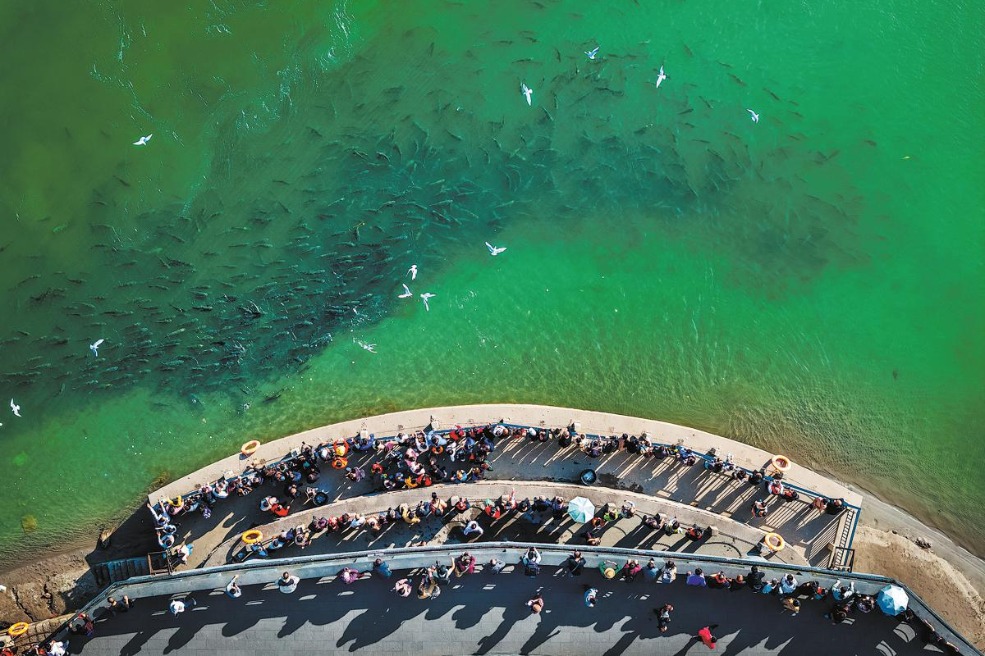Former fishers at fore of refreshing Yangtze
Half way into decade-long fishing moratorium, Yibin's ex-anglers witness ecological recovery of Asia's longest waterway


Dramatic return
The transition wasn't easy.
"My husband and I felt completely lost for a period of time," Tang said. "Having fished for decades, what else could we possibly do?"
Her husband had the hardest time adjusting to life without fishing. "He would endlessly pace around the living room," Tang recalled. "He told me it was unbearable for him to be idle at home."
A few months later, on hearing that the local fisheries administration was recruiting former fishers as assistant patrollers, she breathed a sigh of relief.
"The Yangtze raised me, and now it's time for me to do something for it," she said.
After passing tests for physical fitness, swimming skills and literacy, Tang and three family members — her husband, younger brother and his wife — became members of the local fishery patrol team.
Their mission involves daily patrols along the river to curb illegal fishing, sewage discharge, littering and other activities that could harm the aquatic ecosystem.
Tang starts work at 8 am and finishes at 6 pm, though the schedule was often adjusted in the early days.
"When the fishing ban first started, many people still snuck out to fish — usually under the cover of darkness," Tang said, adding that leaders from the local agriculture and rural affairs bureau and the fisheries administration would often take her and her team on night patrols.
"Those illegal fishers fled like rabbits, but they couldn't escape our watch," she said. "After all, we were fishers ourselves, and we know every fishing spot on this river."
Tough as the work could be at times, Tang believes every effort has been worth it.
To her relief, local residents have become increasingly aware of ecological protection. Illegal fishing, sewage discharge or litter are now rarely seen during her patrol.
Hejiangmen, one of Tang's patrol sites where the Jinsha and Minjiang rivers converge to form the Yangtze, has become a popular tourist spot as large schools of wild fish are usually visible there.
"Many beautiful waterbirds have come. Some weren't even seen here when I was young," she said.























